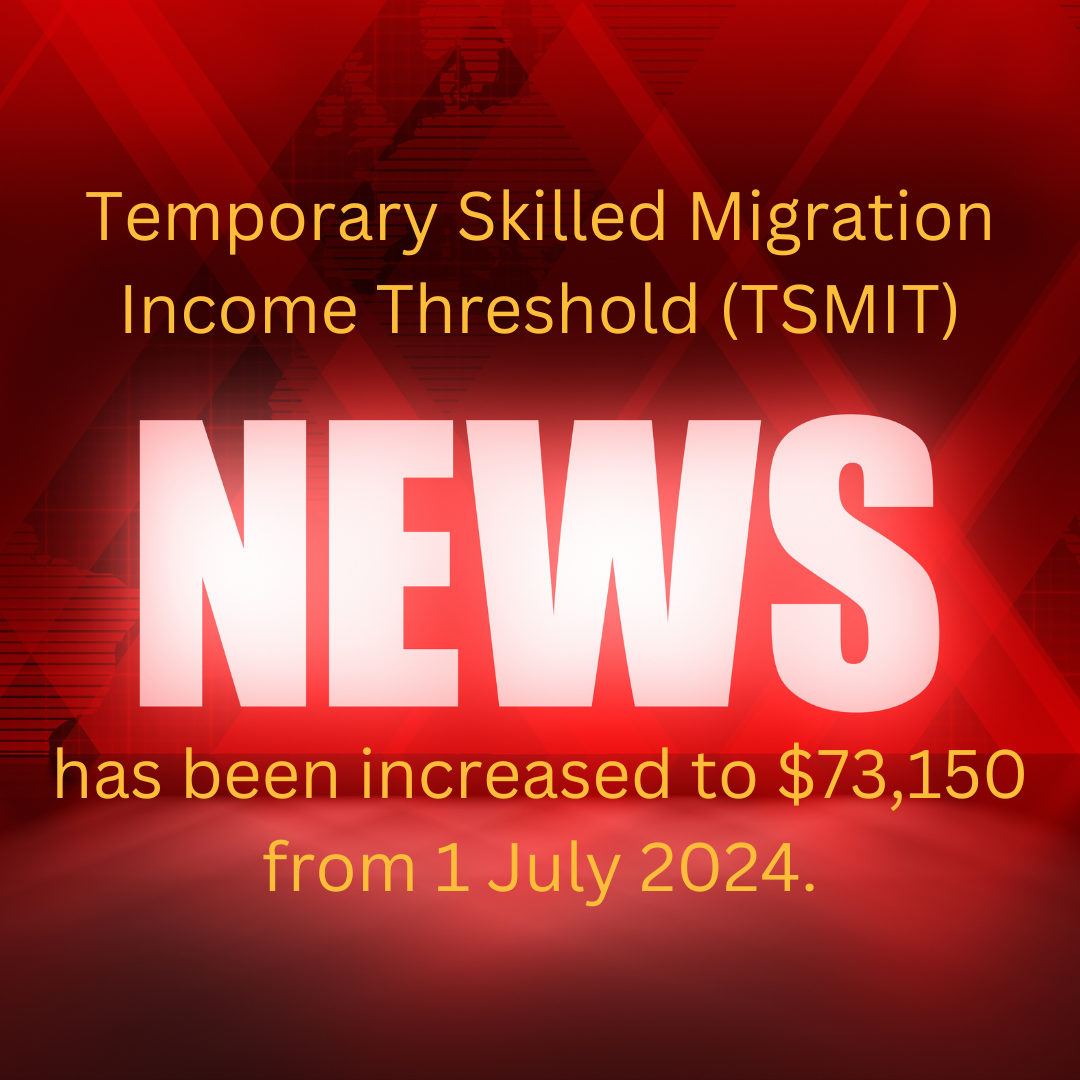TSMIT increased to $73,150 from 1 July 2024
The Australian Government is clearly a gift that does not stop giving.
In another blitz announcement, the Temporary Skilled Migration Income Threshold (TSMIT) has been increased to $73,150 for applications lodged after 1 July 2024.
While this may not seem like a significant increase at first glance, it represents an additional expense for many employers who are already grappling with high salary costs.
To put this in perspective, let’s compare the TSMIT to the minimum wage in Australia. The minimum wage, before taxes, is currently set at $45,864.00. This stark contrast means that the TSMIT is approximately 1.5 times higher than the minimum wage.
For many employers, especially those in industries heavily reliant on skilled migrant workers, this increase could present a significant financial burden. Businesses must now ensure that their skilled migrant employees are paid well above the average salary, which could impact their overall salary budgets and profitability.
The intention behind the TSMIT is to ensure that skilled migrant workers are compensated fairly and that their wages do not undercut those of local workers. However, the impact on employers cannot be overlooked. Small and medium-sized enterprises (SMEs) may find this increase particularly challenging as they often operate on tighter margins compared to larger corporations. Moreover, the rise in TSMIT could have broader implications for the Australian labor market. It might deter some employers from hiring skilled migrants, potentially leading to a shortage of skilled workers in certain sectors. This, in turn, could affect the overall productivity and growth of these industries.
Additionally, the decrease in student numbers will lead to a loss of low-level workforce, further straining a labor market already grappling with shortages. This will deal another blow to sectors dependent on this workforce. It is not clear how the government plans on sourcing workers, especially with the current changes deterring overseas skilled workers and students.





Leave A Comment